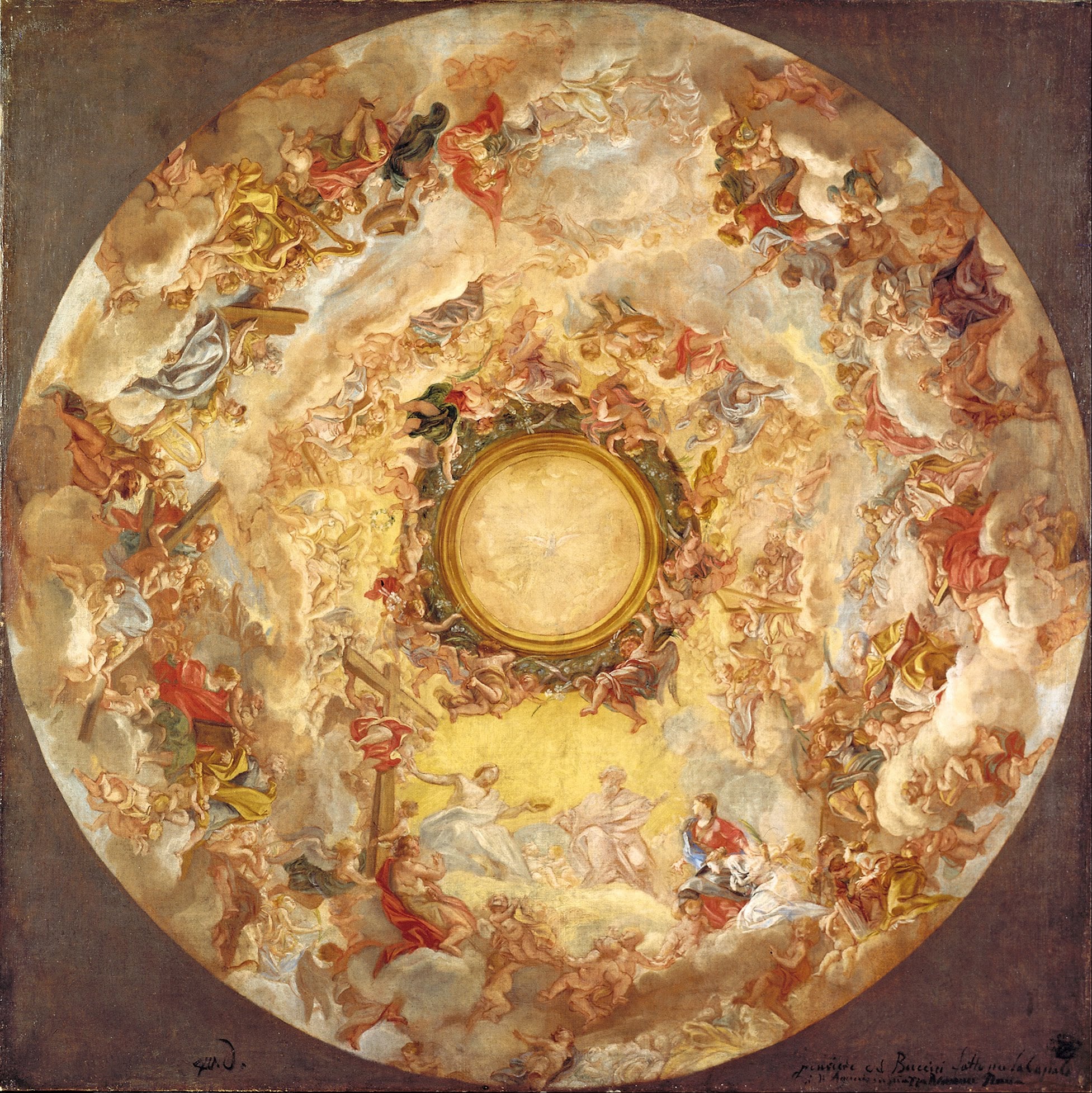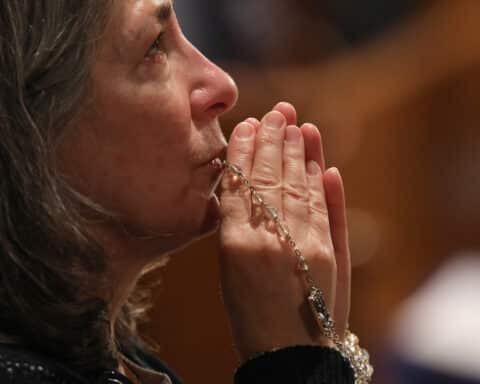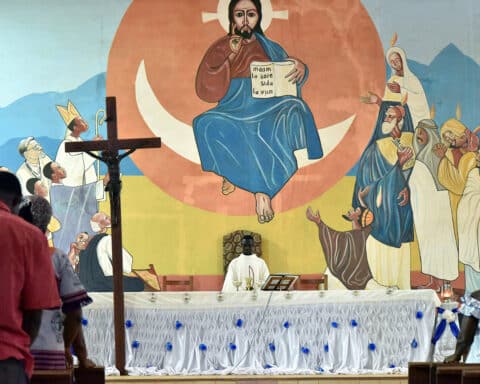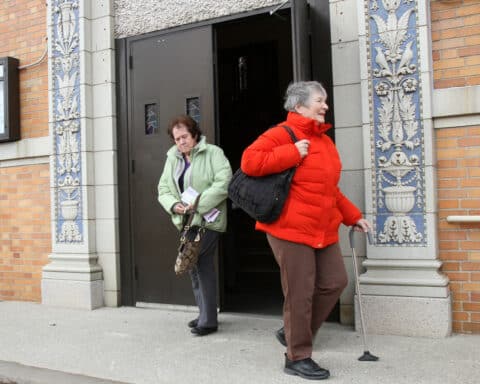
— Eileen Nelson, via email
Answer: The saints in heaven most certainly can communicate with each other, and far more perfectly than we can here on earth among ourselves. The Catechism of the Catholic Church says: “In the glory of heaven the blessed continue joyfully to fulfill God’s will in relation to other men and to all creation. Already they reign with Christ; with him ‘they shall reign for ever and ever'” (CCC, No. 1029).
We rightly reason that heaven perfects earthly realities and relationships, it surely does not end them. Hence, we can conclude the ability of the saints to communicate with each other is expanded and perfected. In the Creed, we declare our belief in the “Communion of Saints.” The word “communion” comes from the same root word as “communication.” It is through our mutual communion with the Lord that our most perfect communication can occur. Since the souls in heaven have perfect communion with God, they also have perfect communion with one another. They are able to see, to understand each other in the Lord of the kind we can only imagine and hope for here on earth. How often do we lament and say to one another. “You don’t understand what I am trying to say!” But in heaven, when the burden of our sins is no longer an obstacle and our communion with one another is perfected in our communion with the Lord, we will understand even as we are understood. We will see and hear each other in and through the Lord. It is doubtful that we will even need to use words in heaven since our communion of mind and heart will convey thoughts and love fully. Thus, we will be able to communicate the depths of our love for one another and how we really felt but struggled to say on earth.
Details at Mass
Question: I remember when the priest came to celebrate the Mass, he would bring with him the chalice and the host covered with a veil the color of the season and a burse with the corporal. Why don’t they do it anymore?
— Cataldo Lazzari, Wilkes-Barre, Pennsylvania
Answer: This was and still is a common practice at a recited (or “low”) Mass in the Traditional Latin Mass (TLM). When a sung Mass or solemn high TLM, occurs, the priest does not carry in the veiled chalice and paten, but they are placed on the altar or credence table before Mass.
Why the priest carries the chalice in for a low Mass is not exactly clear. It may have emerged from a time in monasteries or seminaries when many priests celebrated private Masses early in the morning at side altars and sought to minimize the possible distraction of setting up and taking down of liturgical items for Mass. Hence the priest carried in much of what he needed and carried it out when he was finished. Since sung or solemn Masses were only celebrated at the main altar when other Masses were not being said, this practice was unnecessary. In those occasions the number of servers was also more numerous.
Today this practice of the priest carrying the veiled chalice out with him is less common, but it still occurs in some settings. This is especially the case on weekday masses when servers may not be present and if the credence table is at some length from the altar.
As for the practice of veiling the chalice, this is a form of reverence that keeps the sacred chalice covered until its essential use is at hand — namely, to contain the wine just prior to the consecration and the precious blood until it is consumed by the priest. At other times, it is to be covered or out of sight since it is sacred to this purpose and moment alone. The General Instruction of the Roman Missal states that “it is a praiseworthy practice for the chalice to be covered with a veil” (No. 118). In a time when so many things are casual, there is a value in covering what is holy until its special use requires otherwise. This is also the case with modesty.
Msgr. Charles Pope is the pastor of Holy Comforter-St. Cyprian in Washington, D.C., and writes for the Archdiocese of Washington, D.C. at blog.adw.org. Send questions to msgrpope@osv.com.





